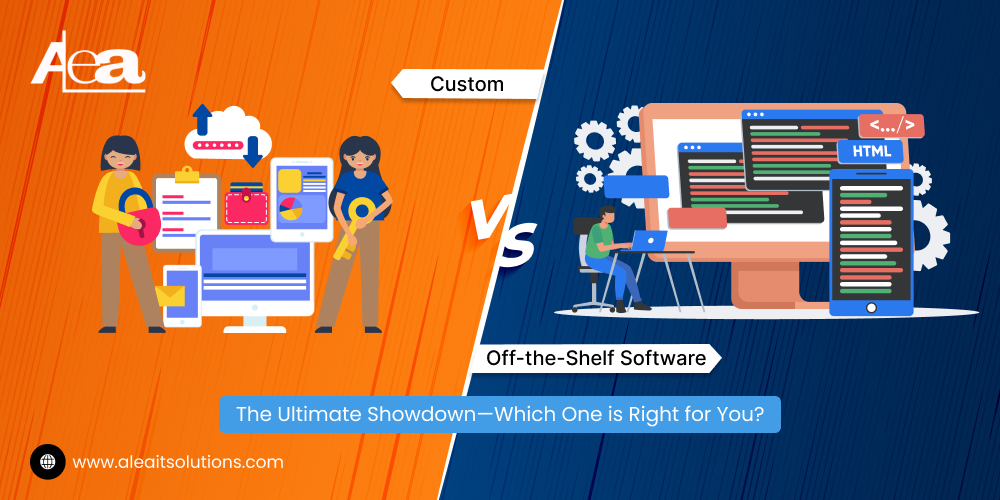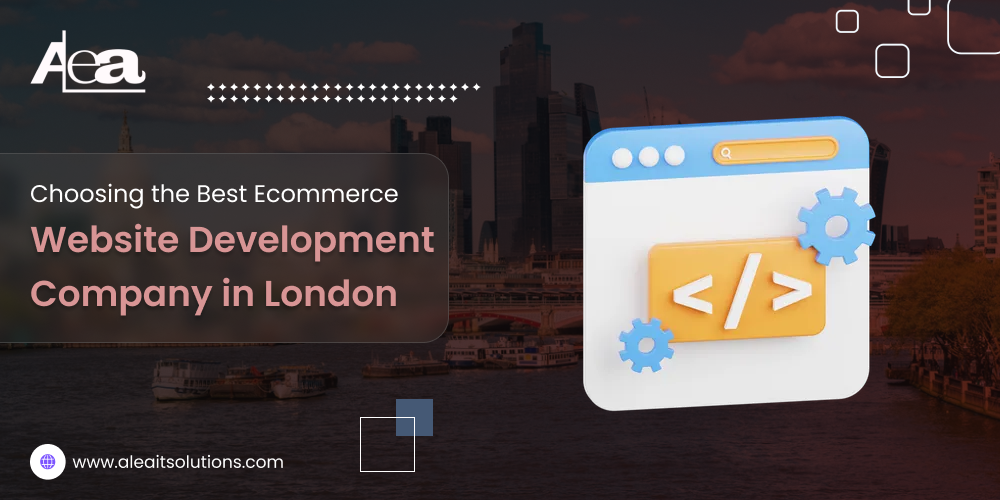In today’s rapidly evolving business world, companies must rely on technology to stay competitive. The right software solution can streamline operations, improve efficiency, and enhance customer experiences. But when choosing software for your business, a fundamental question arises: Should you go with custom-built software or an off-the-shelf solution?
Both options have their pros and cons, and selecting the right one can be crucial for your business’s success. In this showdown between custom and off-the-shelf software, we’ll explore the key differences, the benefits of each, and ultimately help you decide which one is best for your unique business needs.
What is Custom Software?
Custom software, as the name implies, is built specifically for your business. It’s like having a tailor make a suit just for you. Every stitch and design element is aligned with your exact needs.
This type of software is designed from the ground up, based on your company’s workflow, processes, and goals. It’s fully scalable, and you have full control over the features and functionalities.
Pros:
Tailored to Your Needs: Custom software is designed specifically to solve your business challenges, ensuring a perfect fit for your operations.
Scalability: As your business grows, custom software can evolve and expand to meet your changing requirements. You won’t have to worry about outgrowing the system.
Integration: Custom solutions can seamlessly integrate with your existing systems, reducing data silos and streamlining operations
Enhanced Security: With custom software, you have control over security protocols, which can be tailored to meet specific industry standards, protecting sensitive data
Competitive Advantage: With custom software, you have unique features that can set you apart from competitors using generic solutions.
Ownership: Unlike off-the-shelf options, where you might be tied to a licensing model, custom software gives you full ownership of the product, with no recurring licensing fees.
Cons:
Higher Initial Cost: The development of custom software is often more expensive upfront due to the time and resources required to build it from scratch.
Longer Development Time: Custom solutions need to be designed, developed, and tested, which can take months or even longer, depending on the complexity of the project.
Maintenance Responsibility: With ownership comes the responsibility for ongoing maintenance, updates, and troubleshooting.
What is Off-the-Shelf Software?
Off-the-shelf software refers to pre-built applications that are readily available for a wide range of industries. Think of it as buying a suit off the rack. It’s designed to fit a general audience and comes with standardized features and functions.
Popular examples of off-the-shelf software include Microsoft Office, Adobe Creative Suite, and QuickBooks. These solutions are mass-produced, often cheaper upfront, and can be quickly implemented into your business operations.
Pros:
Lower Initial Cost: Off-the-shelf software usually comes with a lower initial investment since it’s already developed and available for purchase.
Quick Implementation: As it’s ready-to-use, you can integrate it into your system almost immediately.
Community and Support: Many off-the-shelf tools have large user bases, which means more tutorials, forums, and customer support options to resolve any issues.
Cons:
Limited Customization: One of the biggest downsides of off-the-shelf software is its limited ability to be tailored to your specific needs. You’re essentially working within the boundaries set by the software.
Bloatware and Unused Features: You might end up paying for features you don’t need or use. These unnecessary functions can also slow down your system.
Subscription and Licensing Fees: Off-the-shelf software often requires continuous payments through subscription fees, which can add up over time.
Making the Right Choice for Your Business: Factors to Consider When Choosing
Now that we’ve covered the basic differences between custom and off-the-shelf software, it’s time to dive into how you can make the right decision for your business. Here are some factors to consider:
Your Business Size and Complexity
If you run a small business with standard needs, an off-the-shelf solution might work perfectly. But as your business grows and becomes more complex, a custom solution might better address specific challenges.
Your Budget for the project
Custom software comes with a higher upfront cost, but it’s an investment. If you’re on a tight budget, off-the-shelf software might be the most practical solution. However, consider the long-term costs of subscriptions and lack of scalability.
Time to Implement the Solution
If you need a solution immediately, off-the-shelf software can provide a quick fix. Custom software requires time for development, so if you have a longer runway, it might be worth the wait.
Flexibility and Adaptability
Off-the-shelf software is rigid, offering little in the way of customization. If your business processes require unique workflows, custom software can adapt to those needs and grow as your company evolves.
Future-Proofing
Think about where your business will be in five or ten years. Will your off-the-shelf software still support you? Custom software can be updated and expanded as your needs change, giving you greater control over future updates.
Ownership and Control
With custom software, you own the product, meaning you can modify it as necessary without depending on third-party providers. With off-the-shelf software, you’re tied to the provider’s update schedule and future changes.
Real-World Scenarios
To further illustrate the implications of your choice, let’s look at some hypothetical scenarios:
Scenario A: A Start-Up: A new company aiming to establish its market presence may choose off-the-shelf software to minimize costs and accelerate deployment. As the business scales and gains traction, they might then opt for custom software that better addresses their evolving needs.
Scenario B: A Large Enterprise: A well-established enterprise with specific operational workflows might find off-the-shelf solutions inadequate. By investing in custom software, they can ensure alignment with their internal processes and gain a competitive edge.
Scenario C: A Non-profit Organization: Non-profits often operate with limited budgets. An off-the-shelf CRM might serve their initial needs effectively, but as they grow, they might explore custom solutions for donor management or volunteer coordination.
Which One is Right for You?
So, how do you make the ultimate decision? It all comes down to understanding your specific needs.
If you need a quick, cost-effective solution with standard features that can be up and running in no time, off-the-shelf software might be the best choice for you. It’s a plug-and-play arrangement that’s basic to set up and comes with parcels of support.
If your business requires unique features, has complex workflows, and is looking for a scalable, long-term solution that gives you complete control, custom software is the way to go. It might take time and cost more upfront, but the payoff in terms of flexibility, adaptability, and ownership can be worth it.
Conclusion
Both custom and off-the-shelf software have their places in the business world, but the best choice depends on your company’s goals, budget, and needs. AleaIT Solutions can help you navigate this decision. Whether you’re looking for a quick solution or need something tailored to your business, our team of experts can provide insights, development services, and ongoing support to ensure your software solution drives success.
Ready to explore your options? Contact AleaIT Solutions today, and let us help you build the future of your business.




